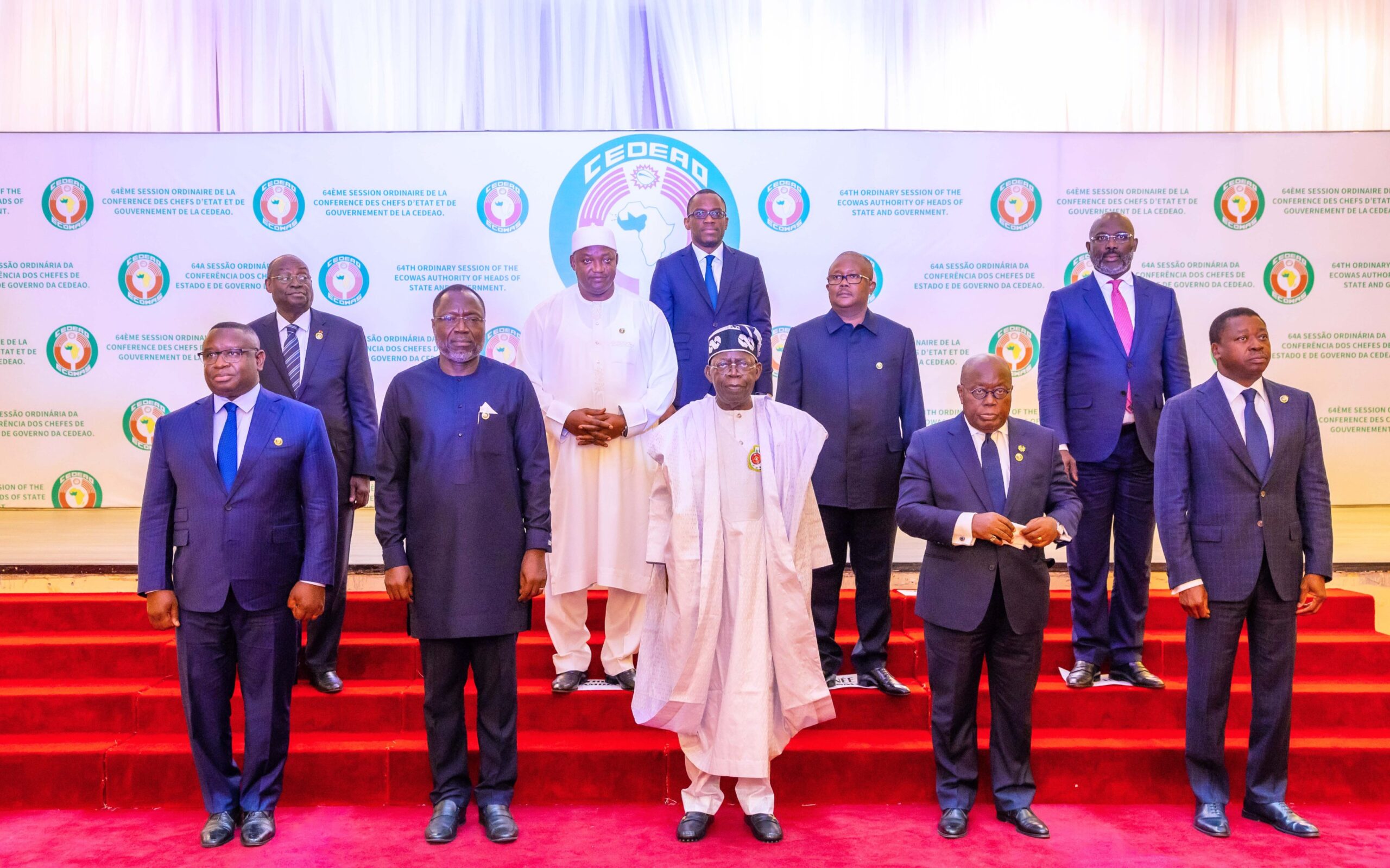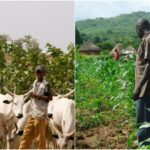Next year, the Economic Community of West African States (ECOWAS) will be turning 50. In the last few years, the union has been working to improve cooperation between member states to ensure free movement of goods and persons across its borders. In 2019, it announced plans to introduce a single regional currency, the ECO, which would be launched in 2026. Everything seemed on course for a more unified West Africa until this week.
Today, ECOWAS is facing an existential crisis. Three countries, Niger Republic, Burkina Faso and Mali, the recent entrants into the junta club, have jumped ship and unilaterally broken out of the union.
Was it a wise decision on the parts of the three countries who have now styled themselves as the Alliance of Sahel States? The fact is that all the three countries are landlocked. Which doesn’t necessarily place them at a great economic advantage. But the reality is that, that has never really stopped any country. Niger Republic alone produces seven per cent of the global uranium output. Whichever country wants it, and most countries who want it, are often desperate to get it, would find ways of getting it out.
ECOWAS may want to capitalise on the three being landlocked and think that would be a big advantage. Realistically, it is a plus. The civil war in Libya means there is no very viable access point to the ports at the moment. Morocco may be offering itself as an outlet, but to get to the Moroccan port, they would have to cross the vastness of Algeria. They could use the Algerian ports, but that would also be extended travel time for their exports. In the end, it does not avail them of the free movement and open borders that the ECOWAS states provide.
If anything, though, being landlocked has never been a death sentence for a country. At one point in history, Berlin was landlocked in a belligerent East Germany and survived; thanks to the Great Berlin Airlift of 1948-1949. Cargo planes exist for a reason.
Did ECOWAS get this wrong? It seems that they did. First, it rushed to install President Bola Tinubu as its head even before he had settled into his job as Nigeria’s president. His antecedent from his inaugural speech and his fiscal policy that have seen the naira in free fall, landing this week at 1,500 to a dollar, shows that he might have the inclination to shoot first and ask questions later. It was not quite the approach that a sensitive crisis like the one he was presented with a few days after being made the ECOWAS chair on July 9.
No doubt, the coup in the Niger Republic called for a definitive action from the regional block. The ECOWAS seemed to have got its conflict theories and analysis mixed up and instead rushed to start a war rhetoric that put the military junta in Niger on the defensive. As a deterrence mechanism, if that was what it was, the war rhetoric failed woefully and the seeming offence and defence balance advantage ECOWAS thought it had quickly evaporated. This is largely because ECOWAS did not read the sands in Niger, Mali or Burkina Faso and factor in other variables that this conflict theory ignores. The coups were popular in their various countries and only increased in popularity when ECOWAS threatened the use of force.
If there is anything one should give the junta credit for, it is the fact that they got their rhetoric right. They spoke the slogans and mantra the people wanted to hear. Down with France! They used propaganda and whatever resources were available to them to convince the populace that they were fighting for them. They broke away from France’s stronghold and aligned with Russia. Russia, always eager for allies and too eager to support any regime that would support it, backed them up. For Russia, this was an easy choice considering its strained relationship with France and its increasing isolation over its invasion of Ukraine.
It is easier to fight an isolated regime than one backed by its people, especially ones that are banding together to form an alliance. In September, the three countries signed the Sahel Pact that binds them to come to each other’s aid in case of internal or external attacks. By the time ECOWAS realised it could not go through with the military threat and had to back down, the damage to its reputation and ego had been done. There simply was no way to do the volte face and step down the use of force rhetoric without losing face, especially considering this stand was even unpopular among the citizens of its member states. Its weakness had become evident and the juntas, drunk on popular support in their countries and realising that the offence-defence balance had shifted in their favour decided to move in for the kill. Their declarations this week are a stab in the body of ECOWAS.
Truth is, ECOWAS could have handled the situation better. With the crisis at this point, is there any redemption for the union? Could the situation be salvaged? The ECOWAS treaty allows a 12-month unbundling process. Only Mauritania had exercised that right before. But the juntas in the three countries do not seem keen to linger another year or be bound by a treaty they now claim has threatened their sovereignty.
The ECOWAS treaty also allows for border closure and restriction of movement of people and goods from the suspended states, the suspension of loans and participation in the community’s activities. The three countries have already been suspended and sanctioned. It has had some economic impacts but not enough to change the opinion of the junta or the people. It has not compelled them to commit to restoring democracy. If push comes to shove, ECOWAS could resort to its Article 73 sub section 2 which provides for disputing member states to “refer the matter to the Court of the Community whose decision shall be final and shall not be subject to appeal.”
In this case, the ruling of the court will only have validity to the extent that the three countries feel bound by the treaty. What other enforcement mechanism could ECOWAS bring to bear? Beyond this, it is hard to see what else ECOWAS could do other than try to bring the rebels to the table and negotiate now from a position of weakness.
One of the key accusations the juntas have levelled at ECOWAS is that the regional body has not supported these countries in combating the security threats they are facing. These are countries that are inundated by terrorist groups that have taken advantage of the porous borders of the region to proliferate and become endemic. The problem is that they are not the only countries facing these challenges. Nigeria, which sits in the chair of the regional body, is equally inundated and so far, President Tinubu has not been very convincing in his approach to the crisis, neither has he been in handling the economic decline that Nigeria has been facing, which started under his predecessor but has accelerated at a dramatic rate since he took office on May 29. It is early days for Tinubu, if one could still say that, but this has not been a great start on a national and regional level. Both Nigeria and ECOWAS are in urgent need of leadership and it is time for President Tinubu to step up before it falls apart.

 Join Daily Trust WhatsApp Community For Quick Access To News and Happenings Around You.
Join Daily Trust WhatsApp Community For Quick Access To News and Happenings Around You.


